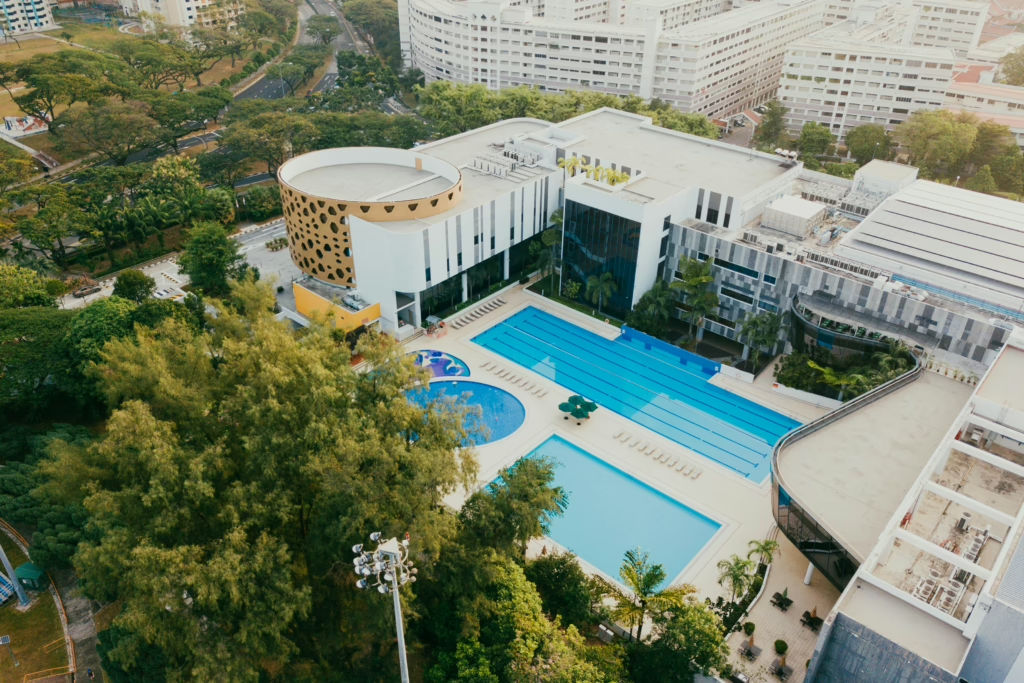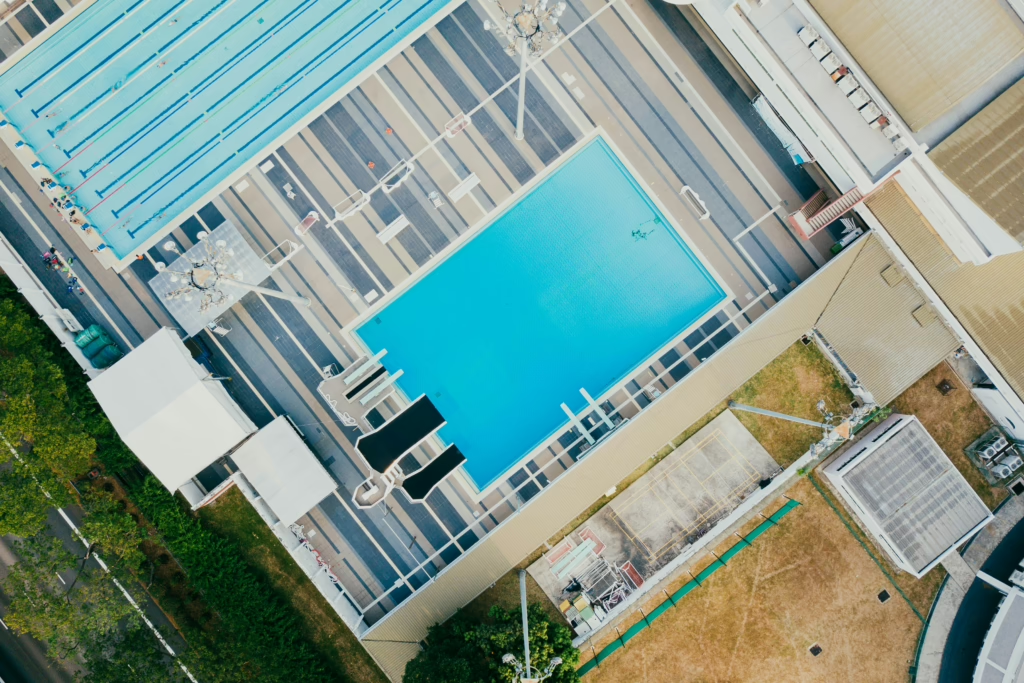Ever had that sinking feeling when you pull back your pool cover and instead of sparkling blue water, you’re greeted by something that looks more like pea soup? Trust me, we’ve all been there. Fighting pool algae feels like a never-ending battle sometimes, doesn’t it?
If you’ve found yourself frantically Googling “algae removal near me” at midnight before a pool party, I get it. Finding someone who knows what they’re doing can save your sanity (and your pool). Let’s talk about what’s actually causing those green invasions, what you can do about them, and when it might be time to call in the cavalry.
Why Is This Happening? Understanding What Causes Pool Algae
Before we jump into solutions, let’s chat about why your pool seems determined to turn into a swamp. These tiny organisms might be microscopic, but they sure know how to make a big mess. Here’s what’s typically inviting them to the party:
1. Chemistry Gone Wild
- Your chlorine’s too low (below 1 ppm) and algae sees it as a “Welcome” sign
- pH levels are riding high, making your chlorine about as effective as a screen door on a submarine
- Your alkalinity’s all over the place, basically rolling out the red carpet for algae
2. Water That’s Not Moving Enough
- Dead spots in your pool where water barely circulates? That’s prime algae real estate
- Filters so clogged they couldn’t catch a beach ball, let alone microscopic algae
- Your pump’s not running long enough to keep things moving (algae loves to settle down)
3. Mother Nature Doing Her Thing
- Those leaves and twigs aren’t just unsightly—they’re literally algae food
- Got rain? It just diluted all those chemicals you carefully balanced
- Sunshine feels great when you’re swimming, but guess what? Algae loves tanning too
The Game Plan: 7 Real Ways to Keep Algae Out of Your Pool
Now for the part you’re here for—how to actually keep your pool looking Instagram-worthy all season:
1. Get Serious About Water Chemistry
- Test your water a couple times a week—it takes five minutes and saves hours of headaches
- Keep chlorine between 1-3 ppm (think of it as your pool’s immune system)
- Aim for that pH sweet spot (7.2-7.6)—too high or too low and you’re asking for trouble
- Don’t ignore alkalinity (80-120 ppm) or hardness (200-400 ppm)—they’re the unsung heroes of pool care
2. Show Your Filter Some Love
- Run your pump 8-12 hours daily—more when it’s hotter than the surface of the sun outside
- Clean those filters regularly—when the pressure gauge starts creeping up, it’s time
- Check for leaks once a month—a quick walk-around could save you from bigger problems
- If your equipment is older than your teenager, maybe consider some upgrades
3. Clean Like Someone’s Coming Over (Even When They’re Not)
- Take two minutes to skim the surface every day—future you will be thankful
- Grab that brush weekly and show special attention to corners, steps, and behind ladders
- Vacuum thoroughly—it’s basically like giving your pool a good sweep
- Don’t forget the waterline—that ring isn’t a fashion statement
4. Be Proactive, Not Reactive
- Weekly algaecide is like taking vitamins—prevention is easier than treatment
- Shock your pool every week or two—especially after that neighborhood pool party
- Consider phosphate removers—they’re like putting algae on a diet
- Add clarifiers occasionally to help your filter catch the small stuff
5. Roll With the Seasons
- Summer means more monitoring—heat is basically algae’s best friend
- Adjust your approach when the mercury rises or falls
- After it rains, check your chemistry—it’s probably out of whack
- Closing your pool properly for winter prevents a green surprise in spring
6. Control Your Pool’s Environment
- Those overhanging trees? They’re dropping algae food directly into your pool
- Use a cover when your pool’s not in the spotlight
- Consider some windbreaks if you’re in a particularly breezy spot
- Too much direct sun? Some strategic shade might help more than you’d think
7. Know the Early Warning Signs
- Water looking a bit hazy? That’s your first red flag
- Walls feeling slick? That’s not normal
- Catching a whiff of something funky? Your nose knows
- Filter pressure climbing for no reason? Something’s up
When DIY Just Isn’t Cutting It
Sometimes, despite your best efforts, you need to wave the white flag and call for backup:
1. When Algae Just Won’t Quit
You’ve shocked it repeatedly but it keeps coming back like a bad penny
Your water looks better briefly, then goes right back to green
You’ve adjusted chemicals so much you feel like a mad scientist, with nothing to show for it
2. The Special Cases
Black algae has moved in (this stuff is the stubborn roommate of algae world)
You’ve uncovered your pool to find it looking like a science experiment gone wrong
Your water’s acting strange in ways you’ve never seen before
3. Maintenance Backup
Sometimes having a pro check things periodically saves money in the long run
They’ll spot warning signs you might miss (it’s what they do all day, every day)
Their commercial-grade equipment hits different than your pool vacuum
Frequently Asked Questions:
1. How fast can my beautiful pool turn into a swamp?
Frighteningly quick. With warm water, plenty of sun, and low chlorine, you can see algae in as little as 24-48 hours. Give it a week, and you might as well be swimming in green Jell-O.
2. Is it really that bad to swim in algae?
Yeah, it is. Algae itself might not hurt you, but it creates a perfect environment for things that can. Plus, algae makes everything slippery—think unexpected swimming pool gymnastics, and not the fun kind.
3. I have a salt system. Am I off the hook?
Nice try! Salt systems make chlorine too, they just do it differently. You still need to keep an eye on everything else. No free passes here.
4. What’s it going to cost me if I call the pros?
For a moderate algae situation, expect to shell out $150-$400 depending on your pool size. Not cheap, but neither is replacing equipment damaged by prolonged algae exposure.
5. Can I go chemical-free and still keep algae away?
In theory? Maybe. In practice? Extremely tough. UV and ozone systems can reduce chemical needs, but eliminating chemicals entirely is like trying to bake without heat—technically possible but probably not getting the results you want.
Final Thoughts
Here’s the thing about pool maintenance—it’s a lot like flossing. A little bit regularly is way better than a panicked deep clean right before the pool party. With some consistent attention to water chemistry, good cleaning habits, and knowing when things are heading south, you can keep your pool looking fantastic all season.
If you’re in the San Diego area and still finding yourself searching for “algae removal near me,” give us a call at PoolLogic. We can have your pool looking pristine in as little as 5 minutes for regular maintenance visits, or tackle the more stubborn issues with our specialized treatments.
Ready to enjoy your pool instead of fighting with it? Let’s make that happen. Your future self (the one relaxing in crystal clear water) will thank you.



